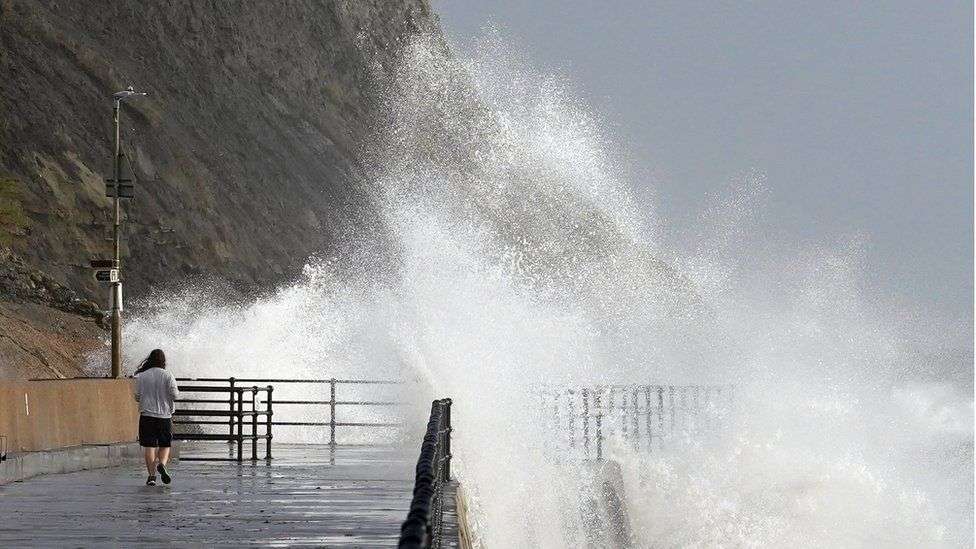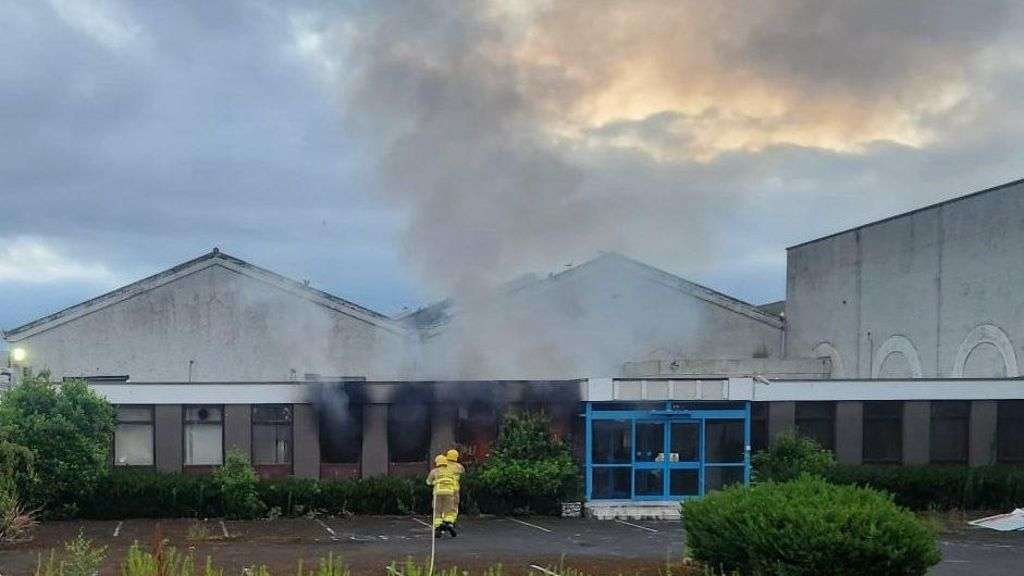A yellow warning for thunderstorms is in place for southern England after Storm Debi brought wild weather to parts of the UK.
The warning follows heavy rain and wind across northern England and Scotland, with gusts of over 70mph (112.7km/h) recorded in Wales and Northern Ireland.
Downpours are expected across the south coast and London until noon on Tuesday.
Debi is the fourth named storm of this winter so far.
The rain and wind first hit Northern Ireland and the Republic of Ireland, then Wales, before moving eastwards and into the North Sea on Monday evening.
In Northern Ireland, the storm caused road closures and some disruption to the public transport network. NIE Networks said about 3,000 customers were without power, mainly around Craigavon, Newry and Downpatrick.
Gusts of up to 77mph battered parts of the Welsh coast after a yellow weather warning across north, mid and west Wales, while winds of 74mph were recorded at Killowen, Northern Ireland, and 68mph on the Isle of Man.
A Met Office amber wind warning - meaning a potential risk to life and property - was in place for parts of south-west Northern Ireland in the morning and remained until 16:00 on Monday in parts of north-west England, including Cumbria, Lancashire and Merseyside.
Yellow weather warnings for wind were also in place for much of northern England and Wales until 18:00. This was extended until 21:00 for much of the north of England, including Lincoln, Sheffield and Manchester up to Carlisle and Newcastle.
Storm Debi developed in the Republic of Ireland, where red weather warnings were in place earlier. About 100,000 homes and businesses have lost power, with the number expected to rise.
A woman was taken to hospital after being hit by flying debris in Limerick and some schools were forced to close.
OceanNewsUK Weather's Simon King said Storm Debi could lead to some localised flooding, especially in Northern Ireland and eastern Scotland.
He said the stormy conditions will be especially felt around Irish Sea coasts and there may be branches or trees down and potentially damage to buildings.
The Met Office said severe weather could lead to the flooding of homes and businesses - with possible fast-flowing or deep floodwater causing a danger to life.
Spray and flooding could also lead to difficult travel conditions, with some road and bridge closures, and disruption to rail, air and ferry services.
The Met Office said mobile phone coverage could also be affected and injuries and danger to life could occur from large waves and beach material being thrown onto sea fronts, coastal and road properties.
British Airways said it had to "make a small number of cancellations" due to the bad weather, which has reduced the number of flights air traffic controllers will allow to land per hour.
Looking ahead to Tuesday, Met Office spokesman Stephen Dixon said: "There will be band of squally showers from 05:00.
"We could see some sudden downpours within that band of thundery showers, with 15-20mm of rain in a relatively short period of time, gusty winds and thunder and lightning."
The latest storm comes after Storm Ciarán caused flooding and disruption across the Channel Islands and southern England, while another recent storm, Babet, flooded nearly 600 properties in Lincolnshire.
Experts say a warming atmosphere increases the chance of intense rainfall and storms.
However, many factors contribute to extreme weather and it takes time for scientists to calculate how much impact climate change has had on particular events - if any.
The world has already warmed by about 1.1C since the industrial era began and temperatures will keep rising unless governments around the world make steep cuts to emissions.








